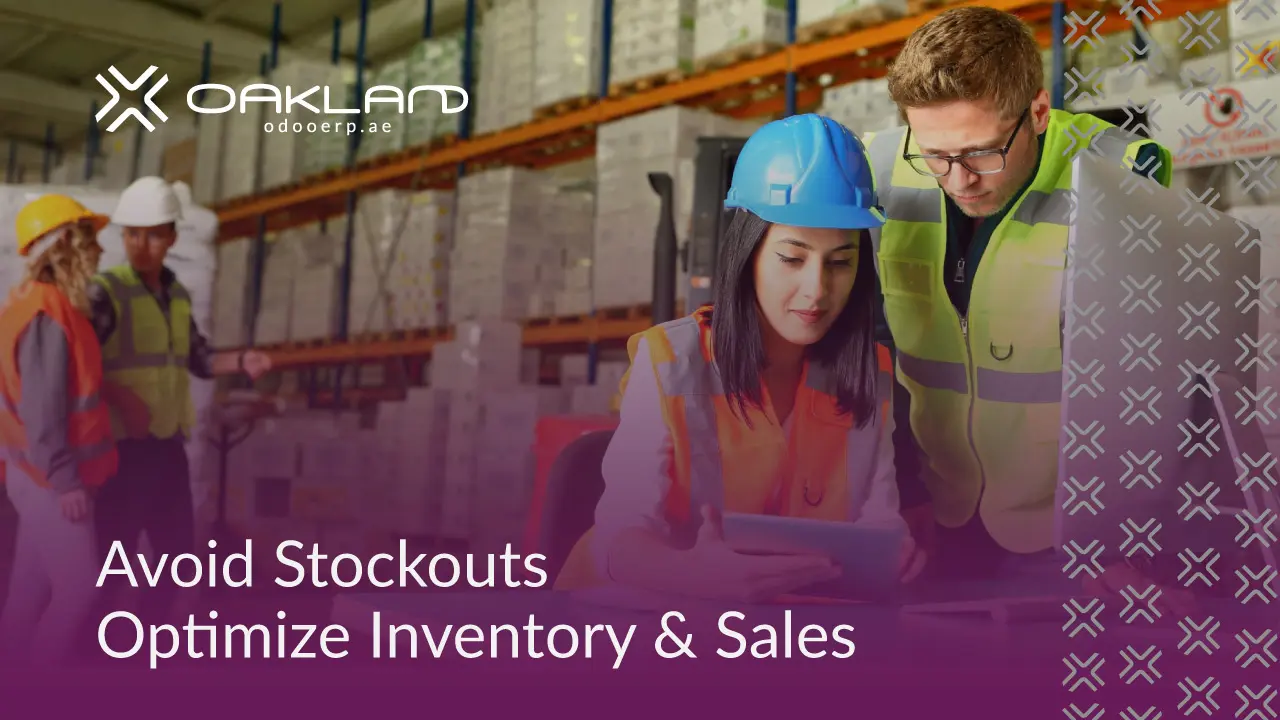How to Align Inventory and Sales to Prevent Stock-Outs
Stockouts disrupt sales, frustrate customers, and hurt profits. Businesses must align inventory with sales demand to prevent these losses. Implementing forecasting, automated replenishment, and real-time tracking ensures products remain available when needed.
Effective Inventory Management Strategies to Prevent Stockouts
Proper inventory management is the foundation for avoiding stockouts. Businesses need strategic approaches to maintain optimal stock levels without overstocking.
Demand Forecasting to Reduce the Causes of Stockouts
Predicting future demand helps businesses avoid running out of stock. By analyzing historical data, market trends, and seasonal fluctuations, companies can maintain the right inventory levels.
Accurate forecasting allows businesses to anticipate peak sales periods and adjust stock accordingly. Factors like holidays, promotions, and unexpected market shifts should be considered when planning inventory replenishment. Businesses that rely on guesswork often face either stockouts or excess inventory, both of which impact profitability.
Technology plays a crucial role in demand forecasting. AI-powered analytics, sales trends, and customer purchasing patterns can predict future demand with greater precision. Odoo’s inventory module provides real-time insights, helping businesses make data-driven decisions to maintain a steady supply of in-demand products.
Automated Reordering and Safety Stock for Your Business
A well-structured reordering system prevents stockouts by ensuring inventory is replenished at the right time. Businesses can use automated purchasing tools to maintain sufficient stock levels without manual intervention.
- Automated reorder points: Set thresholds that trigger purchase orders when stock drops below a certain level.
- Supplier lead time tracking: Monitor how long it takes for new stock to arrive and adjust reorder points accordingly.
- Real-time inventory updates: Prevent miscalculations by synchronizing stock levels across multiple sales channels.
Maintaining safety stock is another key strategy to prevent disruptions. Safety stock acts as a buffer against supply chain delays or unexpected demand spikes. Calculating the right amount depends on sales volume, supplier reliability, and average lead times. Odoo’s inventory automation simplifies stock monitoring, ensuring businesses always have the right balance between demand and supply.
Sales and Inventory Synchronization to Prevent Disruptions
Aligning sales with inventory prevents stockouts and ensures smooth operations. Businesses must integrate their sales data with inventory tracking to maintain optimal stock levels in real time.
Real-Time Stock Updates to Prevent Stockouts
Accurate stock updates help businesses avoid overselling and understocking. Synchronizing inventory across sales channels ensures that stock levels reflect actual availability.
Manual tracking often leads to errors, resulting in stock discrepancies. A real-time system automatically updates inventory whenever a sale is made, reducing the risk of stockouts. Whether selling online or in-store, businesses need to ensure that every transaction reflects the current stock status.
Odoo’s inventory management system automates stock updates, integrating seamlessly with eCommerce platforms, retail stores, and warehouses. Businesses can set low-stock alerts, track stock movements, and update customers about product availability—all in one centralized system.
Centralized Data to Calculate Stockout Rate and Improve Fulfillment
A unified inventory system consolidates data across multiple locations, enabling businesses to analyze stock performance and optimize order fulfillment.
Without a centralized system, businesses struggle to track inventory across different warehouses or sales channels. This leads to misallocated stock, delayed shipments, and stockouts. A single database allows companies to monitor stock levels, calculate stockout rates, and adjust supply chain strategies accordingly.
Key benefits of centralized inventory management include:
- Improved accuracy: All sales and stock movements are recorded in one place, reducing errors.
- Better demand planning: Businesses can analyze historical sales data to forecast future stock needs.
- Faster fulfillment: Orders are processed efficiently, ensuring timely delivery and preventing customer dissatisfaction.
Odoo provides a fully integrated inventory and sales module, allowing businesses to access real-time stock data from a single dashboard. With automated stock adjustments, order tracking, and inventory reports, companies can streamline operations and minimize stockouts.
Preventing Supply Chain Disruptions and Reducing the Cost of Stockouts
Supply chain issues are a major cause of stockouts. Businesses must develop strategies to ensure consistent inventory flow and reduce the financial impact of stock shortages.
Supplier Relationship Management to Prevent Stockouts
Strong supplier relationships help businesses maintain a steady inventory supply. Reliable vendors ensure that stock replenishment happens on time, reducing the risk of shortages.
Late shipments, poor communication, and unreliable suppliers cause stockouts and disrupt sales. Businesses should work closely with their suppliers to ensure timely deliveries, negotiate better terms, and establish backup suppliers for emergencies. Regular performance reviews help identify potential risks before they affect inventory levels.
Key strategies for improving supplier relationships include:
- Diversifying suppliers: Reduces reliance on a single vendor and minimizes supply risks.
- Monitoring lead times: Helps businesses adjust reorder points based on supplier performance.
- Automating purchase orders: Ensures timely replenishment by triggering restocking processes when inventory reaches a critical level.
Odoo’s purchase management module streamlines supplier communication, tracks purchase orders, and automates reordering to prevent delays. Businesses can monitor supplier performance and adjust procurement strategies based on data-driven insights.
Multi-Channel Inventory Tracking to Avoid Stockouts and Disruptions
Selling across multiple channels increases the risk of stockouts if inventory is not properly managed. A unified tracking system ensures stock visibility across all sales platforms.
Retailers managing physical stores, eCommerce platforms, and wholesale operations must track inventory in real time. Without proper synchronization, stockouts occur when one channel sells an item that is no longer available. A multi-channel inventory system updates stock levels instantly, preventing overselling and misallocation.
Read this Awesome Guide to Know How to Avoid Common Retail Management Mistakes.
Key benefits of multi-channel tracking include:
- Improved stock accuracy: Prevents duplicate sales by updating inventory across all channels.
- Faster order fulfillment: Ensures available stock is allocated to the right sales platform.
- Better demand forecasting: Tracks sales trends across different channels to optimize inventory levels.
Odoo provides an integrated multi-channel inventory system, connecting POS, eCommerce, and warehouse management into one seamless platform. Businesses can synchronize stock, set automated low-stock alerts, and streamline fulfillment to prevent disruptions and reduce the cost of stockouts.
Summary
Avoid Stockouts: Optimize Inventory and Sales with Odoo ERP Solution
Stockouts can ruin a business, leading to sales loss, unsatisfied customers, and inefficiencies in operations. To maintain seamless operations, businesses need a reliable and efficient inventory and sales management system. The key to operations are real-time tracking, accurate demand forecasting, and automated stock replenishment.
For businesses in the UAE seeking effective ERP solutions, Oakland OdooERP.ae in UAE offers customized ERP software tailored to enhance functionality and usability. As a leading ERP provider in the GCC region, have a proven track record in successful ERP implementations across various sectors, including manufacturing, retail, and e-commerce. Feel free to contact us and speak to our expert consultant.

